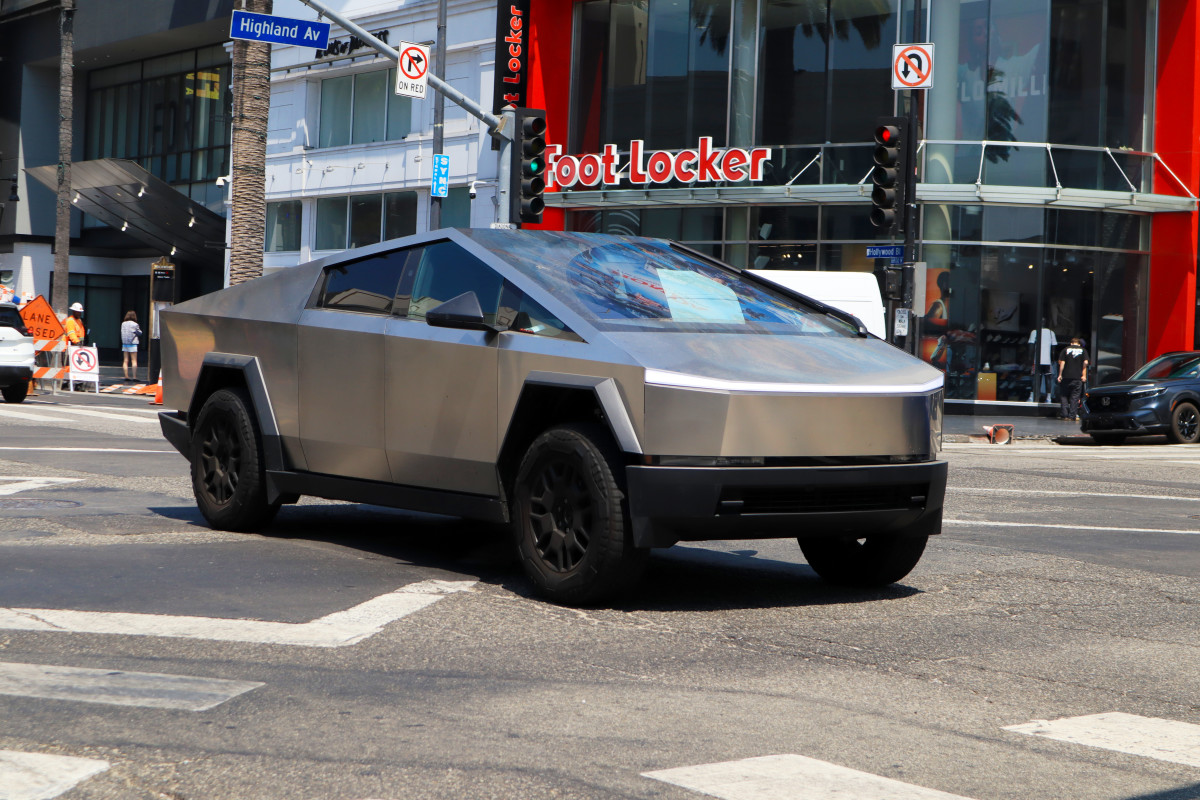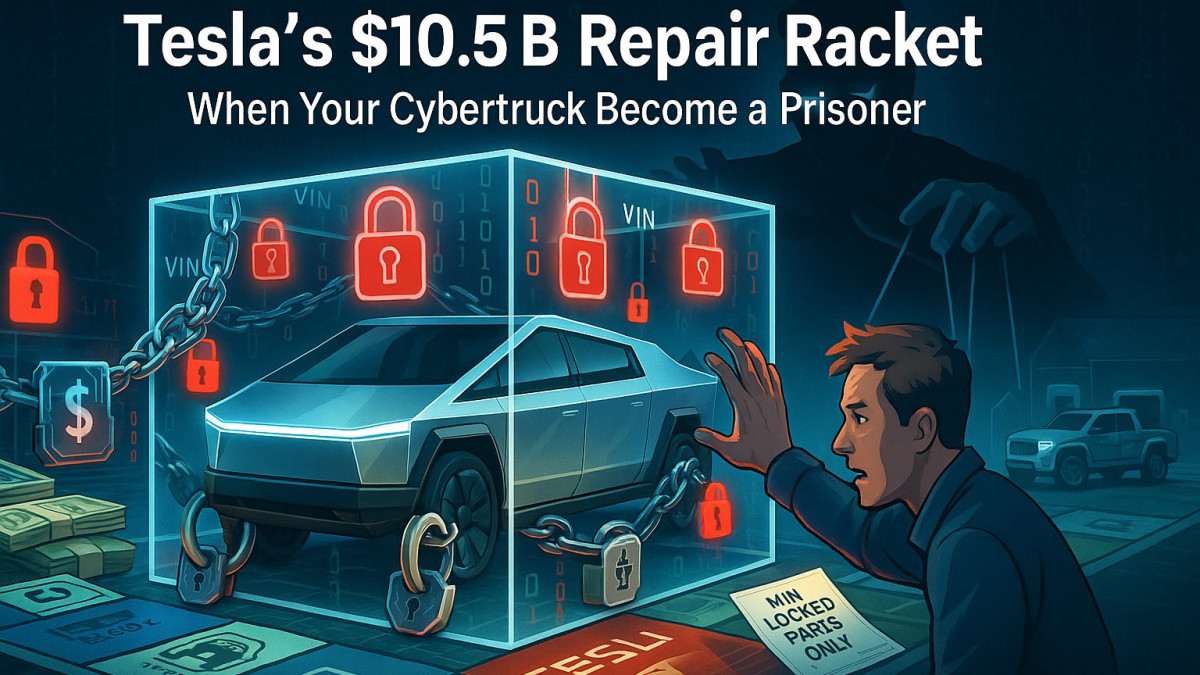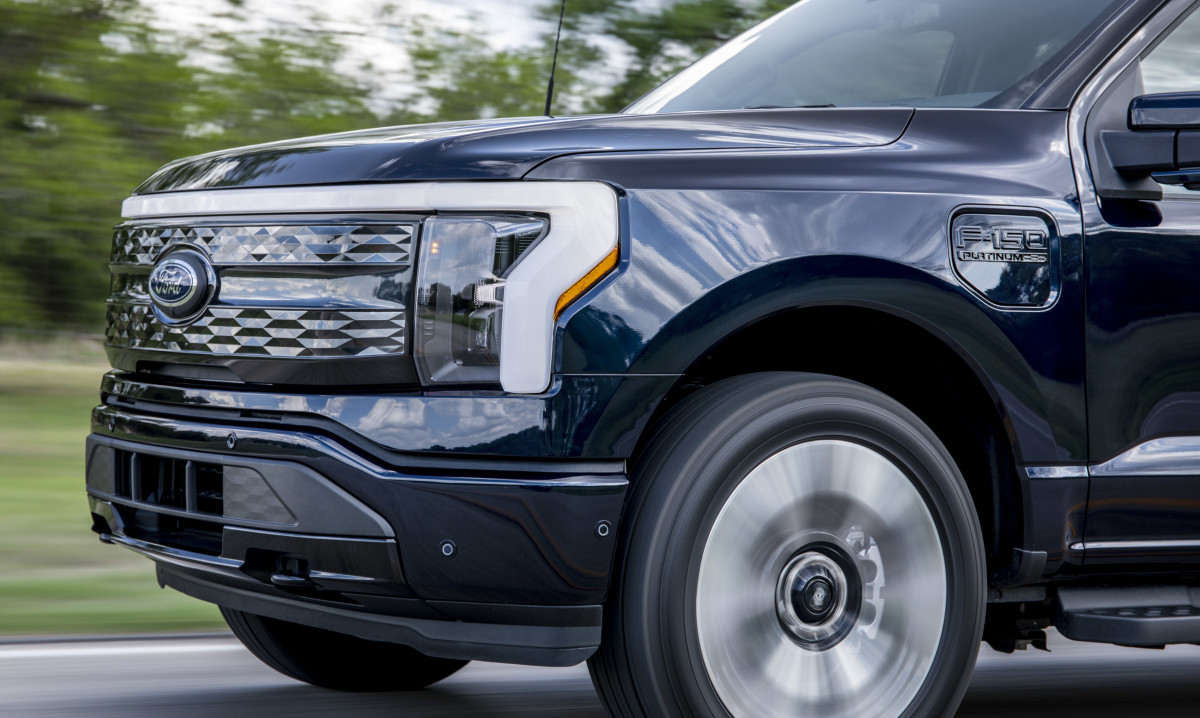Potholes and Price Tags

Imagine rolling a new Tesla Cybertruck into your driveway, the proud owner of a futuristic beast, until a single pothole sends it to the shop with a jaw-dropping repair bill. That’s exactly what happened to one driver facing a $34,013 repair cost after hitting a washed-out road. Tesla’s hefty charges—$21,076 for parts alone—and a four-month wait showcase a troubling trend: car owners lose their autonomy when parts and repairs are tightly controlled by the manufacturer.
Repair Monopoly

One of the key issues with Tesla is the exclusivity of their repair process. The company uses proprietary software that locks out all but their technicians from performing even basic functions. Want to adjust the air suspension? That’s behind Tesla’s digital gates. Parts are VIN-locked, meaning salvaged pieces are useless once remotely disabled. It doesn’t just hit the wallet hard; it takes away from the ownership experience itself.
In the notorious “Odometergate” lawsuit, Tesla is accused of altering odometers to inflate readings using complex algorithms, not actual miles. That means some owners, like a Model Y driver, could face expired warranties and unexpected bills—up to $10,000 for a suspension repair—before they even see it coming. This practice locks owners in a cycle of dependency on Tesla service centers.
Alternatives

Switch lanes over to Ford and GM, and a different story emerges. Ford’s F-150 Lightning allows independent shops to access diagnostics via standard OBD-II ports, while GM’s Ultium platform deploys modular components typically priced 40% below Tesla’s bespoke parts. These companies are showing that high-tech doesn’t have to mean high control over repairs.
Tesla’s repair and parts costs can tower over competitors, with reports suggesting their prices are 66% higher in some cases. A Model 3’s cabin heater might run $920, whereas a similar fix in a Chevy Bolt costs about $320. Their business model sees them raking in billions—$10.5 billion expected in service revenue alone for 2024, thanks to such practices. While some may invest in Tesla stock finding it promising, the reality for owners tells a story of a corporation playing its cards against consumer interests.
Rights Beyond Wheels
A class-action suit approved by U.S. District Judge Trina Thompson points the finger at Tesla for possible antitrust violations, with the hope of opening parts and diagnostic tools to third parties. If successful, such a ruling could drastically lower repair costs and wait times for Tesla owners.
Owning an electric vehicle should not mean signing up for a lifetime of service contracts with the manufacturer. When a single software-locked part has the power to cost more than several months of car payments, it’s fair to question if ownership is literal or just nominal. For those seeking real control over maintenance, vehicles offering standard OBD-II access and supporting independent repair options should be worth a closer look. After all, a car should serve its owner, not the other way around.
For more insights, read the full article.
Honda's Bold New Moves
Rivian Cost Worries
Lotus Eletre SUV
Aging Cars Boost Parts
Tesla Cybertruck Slump